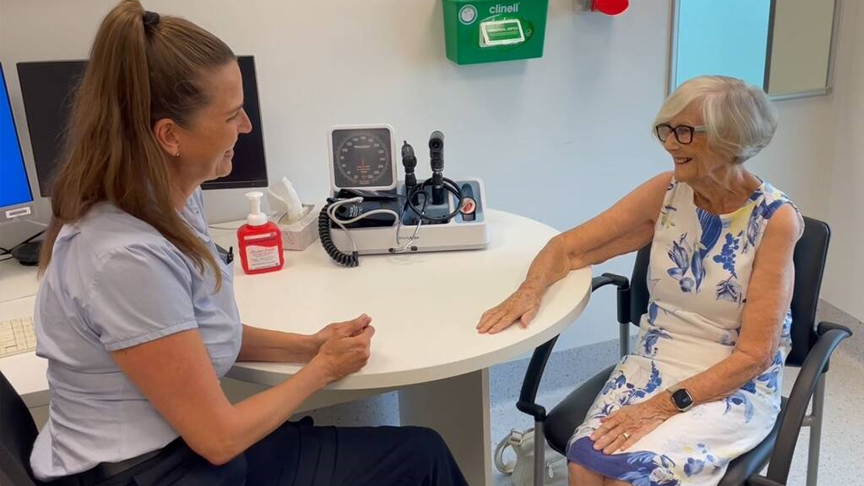
Kidney related disease kills more Australians each year than breast cancer, prostate cancer and road accidents combined, yet awareness of this silent killer remains low.
This World Kidney Day (March 9) Sunshine Coast Hospital and Health Service (SCHHS) medical professionals are urging locals and their loved ones to understand the causes and symptoms that suggest kidney disease and seek medical assistance.
“One in three Australians will experience some level of kidney failure in their lifetime and often there are no symptoms until the disease has progressed to a very advanced state,” SCHHS Clinical Nurse Consultant Gemma Blake said.
“Treatments and technology to assist with kidney disease have increased significantly, but these are treatment options, not cures. Accessing dialysis is a commitment, and accessing a transplant is also a commitment.
“Understanding what your values are and creating things like advanced health directives is important, so that your family really know what’s important to you and what you would like your quality of life to look like,” Gemma said.
Chronic kidney disease often has very few symptoms, or non-specific symptoms, such as tiredness, loss of appetite, nausea and generally feeling unwell. Many people can lose up to 90 per cent of their kidneys’ function before experiencing any symptoms. This is why it is often referred to as the silent killer.
Elizabeth’s story
For Sunshine Coast local Elizabeth Worthington, a case of gout was the only sign she had of having kidney failure.
“I learnt some lessons, I learnt to drink more water, because I prided myself on being able to go all day without a drink, so I learnt that was a naughty thing to do, and to also probably not eat as much red meat as I did and be a bit more careful about my diet.”
“I was terrified about the thought of dialysis because I only have two phobias in life, one is needles, and one is blood, so the idea of haemodialysis was very frightening for me.”
Fortunately, SCHHS staff were able to work with Elizabeth, and she now uses peritoneal dialysis every night, where a cleansing fluid flows through a tube into part of your abdomen and acts as a filter and removes waste products from your blood.
“I can go to bed at night, do it while I’m asleep, then get up the next day and just lead my normal life again. It wasn’t until I had been on that a couple of months I realised I had been quite sick because I felt so much better,” she said.
Peritoneal dialysis allows Elizabeth to continue doing the things she loves during the day, like meeting friends for coffee and participating in committees.
“The staff at the renal clinic, I go to at Nambour General Hospital, are just amazing. There’s 24-hour support for this type of dialysis so I am just amazed,” she said.
Australians at risk of developing chronic kidney disease include those who have diabetes,
high blood pressure, are obese, smoke, have a history of previous kidney injury, are older than 60, and Aboriginal and Torres Strait Islander people. Kidney disease may also run-in families.
If you are not sure if you’re in a high-risk group you can take Kidney Health Australia’s online Kidney Risk Test, it takes a couple of minutes and could save your life. www.kidney.org.au.